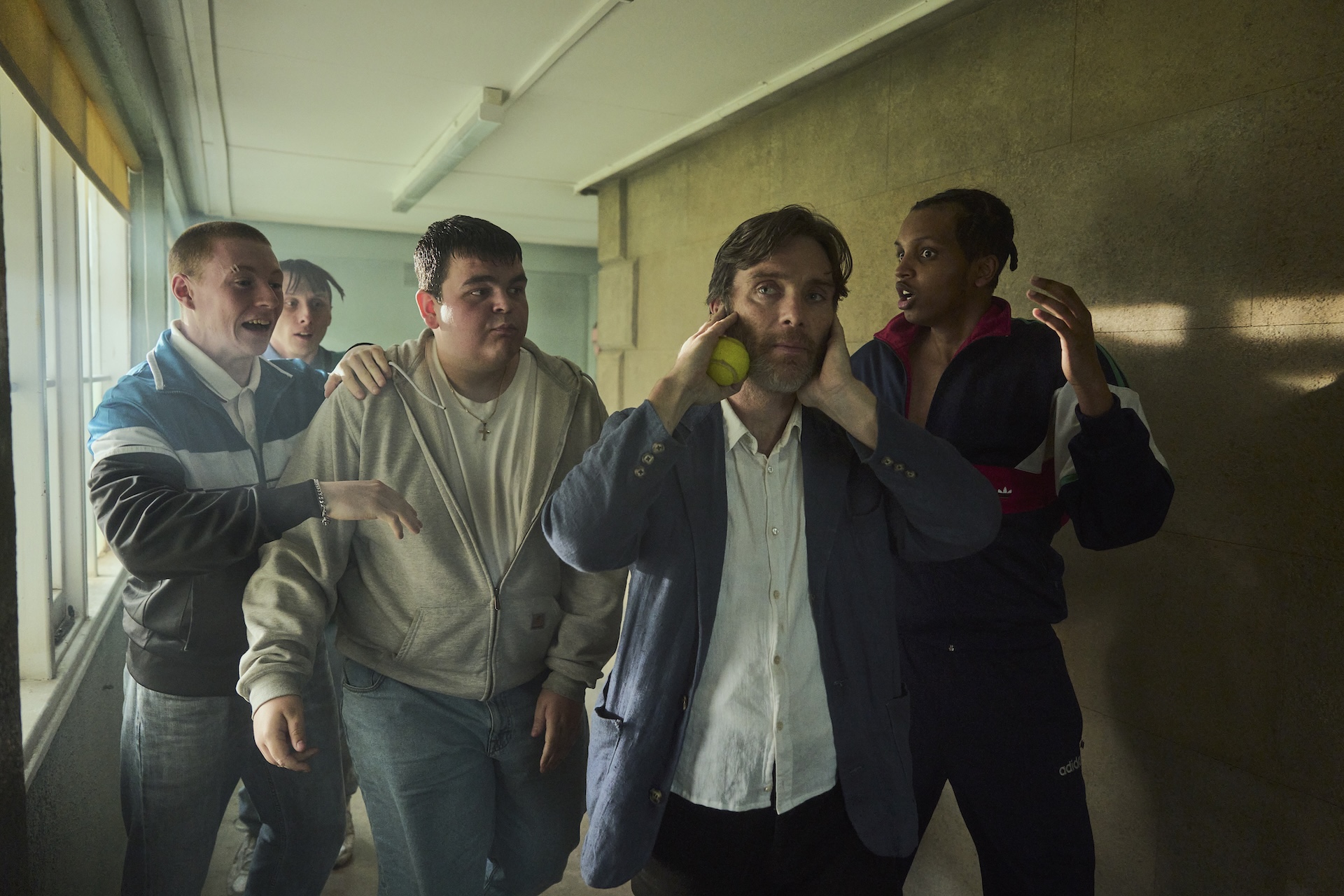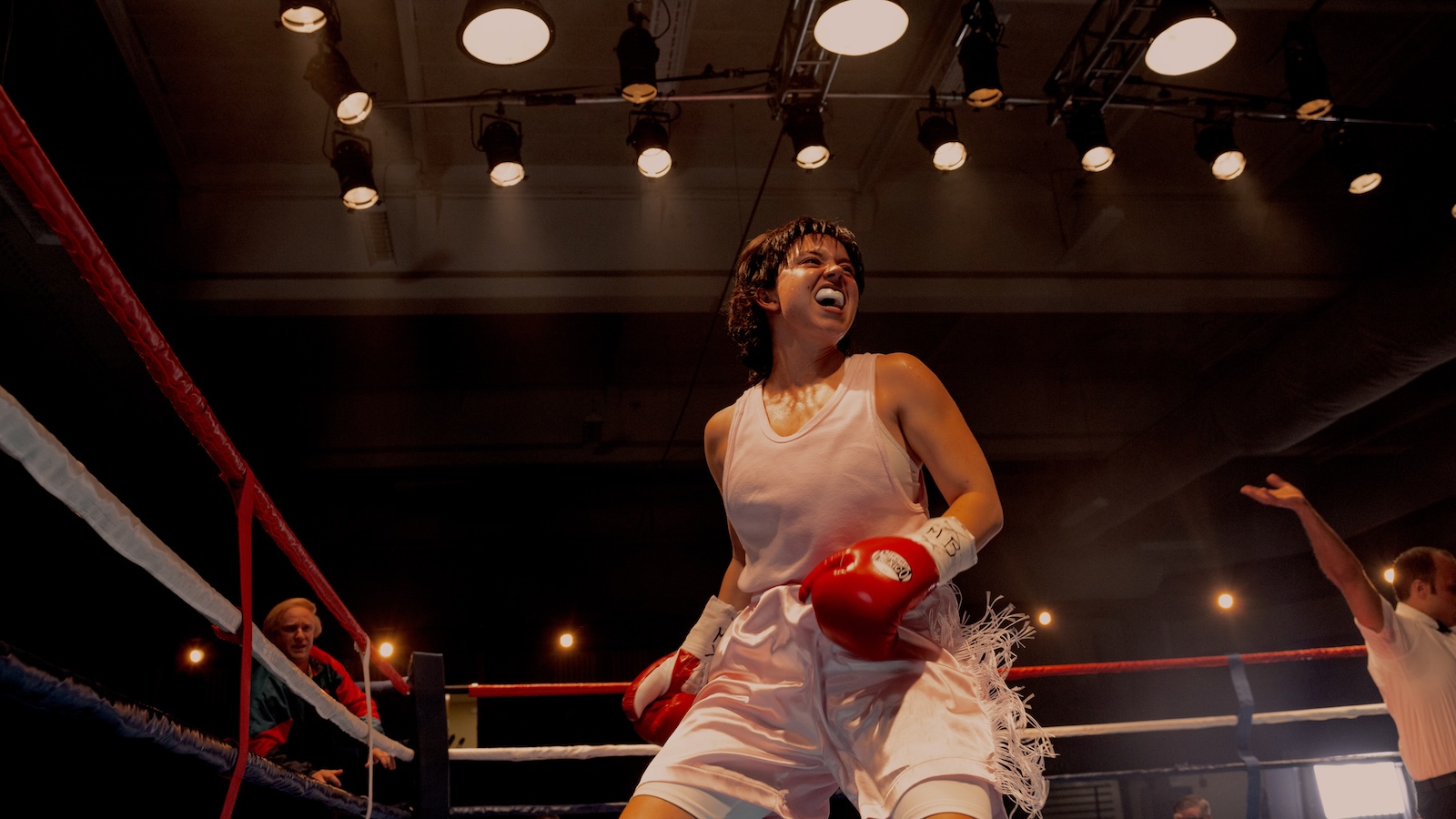If nothing else, “Franz” gets the handwriting right. Sure, praising someone’s calligraphy is the quintessential backhanded compliment, but when it comes to Kafka, the penmanship is important. The Czech literary titan was famous for preferring to write longhand, even after the explosion of the typewriter. His manuscripts are displayed in museums across the world, having attained an almost mythical status. Agnieszka Holland’s feverish new biopic on Kafka often finds itself pouring over his desk or sneaking glimpses of his love letters. In a surreal tableaux, these pages swirl on the steps of his dedicated museum in modern-day Prague, trampled by visitors as they pass by. It’s as if, by ogling convincing simulacra of the past, she may discover some hidden facet of the man buried by popular culture and the goldfish memory of history.
But these pages are nothing more than solid replicas. They are superficial offerings to a shallow hagiography, an unfortunately apt microcosm of the rest of the film. “Franz” is a total misfire — outrageous and bland in equal measure. Nearly every garish flight of fancy that decorates the frame is a distraction while the majority of the film does little more than rotely dramatize Kafka’s biography.
That last point is no exaggeration. Holland and Marek Epstein’s screenplay breathlessly regurgitates an aggregated fact sheet of Kafka’s life. It feels as if there isn’t a single event, desire or character trait demonstrated by any individual within the film that does not appear on Kafka’s Wikipedia page. We follow Kafka from his early readings through his torrid, long-distance affairs with countless women, until his eventual death from tuberculosis. There are occasional flashbacks to his childhood, as well as moments out-of-time, where Kafka finds himself in the modern-day Czech republic, but none of this alleviates the pacing doldrums of a conventional biopic. This is exacerbated by a script that condenses events to the point where no artistic liberties could reasonably fit. At a single, two-minute dinner, Hermann Kafka smashes a cockroach while denigrating his son’s engagement to Felice Bauer before reiterating his distaste for Franz’s writing. Ironically given its subject, the structure of “Franz” is terminally incurious.
This literalism extends across the entire picture. The actors appear to have been chosen based on their likenesses alone. The costume department makes sure to recreate any outfits worn in available photos of real-life counterparts. Every time the dialogue threatens to become beautiful, it turns out to be a direct quote from Kafka’s own writing, transposed into casual conversation. Oftentimes, primary sources from those around him are reshaped into monologues delivered straight to camera, akin to a talking-head in a documentary. The chosen snippets are uniformly mournful and sycophantic, but here is the first example of many stylistic misfires. The implication of this motif is that a camera has collapsed time; that it has essentially summoned these tertiary figures for interviews. In effect, this is just a trope of mondo films — or, less charitably, mockumentaries. A moment where Franz’s sister catches her hair on a branch and mugs the camera prompted the thought: “Has anybody involved seen ‘The Office?’”
Agneiszka Holland is obviously no hack, nor has she necessarily lost her touch in the twilight of her career (“Green Border” premiered two years ago to widespread acclaim). She is, however, a maximalist, to both her benefit and detriment. This is obvious in the film’s best scene, a dramatization of “In The Penal Colony.” The setpiece is brutally gruesome, darkly comic, and viscerally ambitious. It evokes not just what made Kafka unique, but also how his sensibility has proliferated throughout all genres of art over the past century, from the surrealists of the ’20s to the grindhouse cinema that followed a few decades later. Here and nowhere else, Holland treats Kafka’s oeuvre not as abstract fodder for pithy musing, but as texts which were published at a real point in history, that came from the mind of a person and not a divine conduit.
Unfortunately, few of Holland’s other gambits pay off. Increasingly over its two-hour runtime, I found myself asking a single question: Why? Why is every fifth shot a crash zoom? Why does a cherry appear dangling above a fallen Franz’s lips as he peeps up the skirts of some girls? Why show Franz playing tug-of-war naked at a sanitarium with a bunch of men wearing animal masks? Why include a joke where Americans, unable to appreciate his genius, are funneled into a tourist trap called “Kafka Burgers”? Why are there multiple anachronistic Polish indie rock needle drops? It’s not that symbolic significance of these moments is hard to parse. It’s that they are so redundant, so cliched, so catastrophically silly, that I am stunned they made it into a finished project.
Perhaps this is particularly noticeable because the thematic preoccupations of the film are so trite. If Holland has any novel insights into Franz Kafka — as a man, artist, or icon — they are entirely absent here. Despite the movie’s focus on his romantic trysts, it remains at a strict remove from his own neuroses around intimacy. There are repeated nods to Kafka’s Jewish identity, though there is no reckoning with how this has shaped the perception and influence of his work over the subsequent century. Despite constant comments about how Kafka’s stories spoke to the public, Holland is reticent to illustrate any specifics. Never does anybody in the film deviate from their pre-ordained archetype; never does Kafka, Holland’s invention, deviate from Kafka, the legend. Here, a singular man and canonical artist is rendered yet another sexually frustrated, misunderstood, tortured genius. There is a kernel of an idea in this ethos, that any attempt to know such a cultural behemoth inevitably results in the perpetuation of what it seeks to reject. Alas, at no point does that feel like a conscious aim of the film.
There is little to outright recommend about “Franz,” though I will admit I did not have a bad time with it. The film pulses with an old-school arrogance that I find charming. It has a sincere belief that Kafka is one of the most important figures to ever live. It believes in the enviable martyrdom of the solitary artist. It has a young Franz in a jail cell, on a stage, surrounded by mirrors, because one or two visual metaphors would not have been enough. It is surely a failure, but it has twice the soul and passion of many technically successful pictures from lesser artists. If only that were enough.
Grade: D+
“Franz” premiered at the 2025 Toronto International Film Festival. It is currently seeking U.S. distribution.
Want to stay up to date on IndieWire’s film reviews and critical thoughts? Subscribe here to our newly launched newsletter, In Review by David Ehrlich, in which our Chief Film Critic and Head Reviews Editor rounds up the best new reviews and streaming picks along with some exclusive musings — all only available to subscribers.



